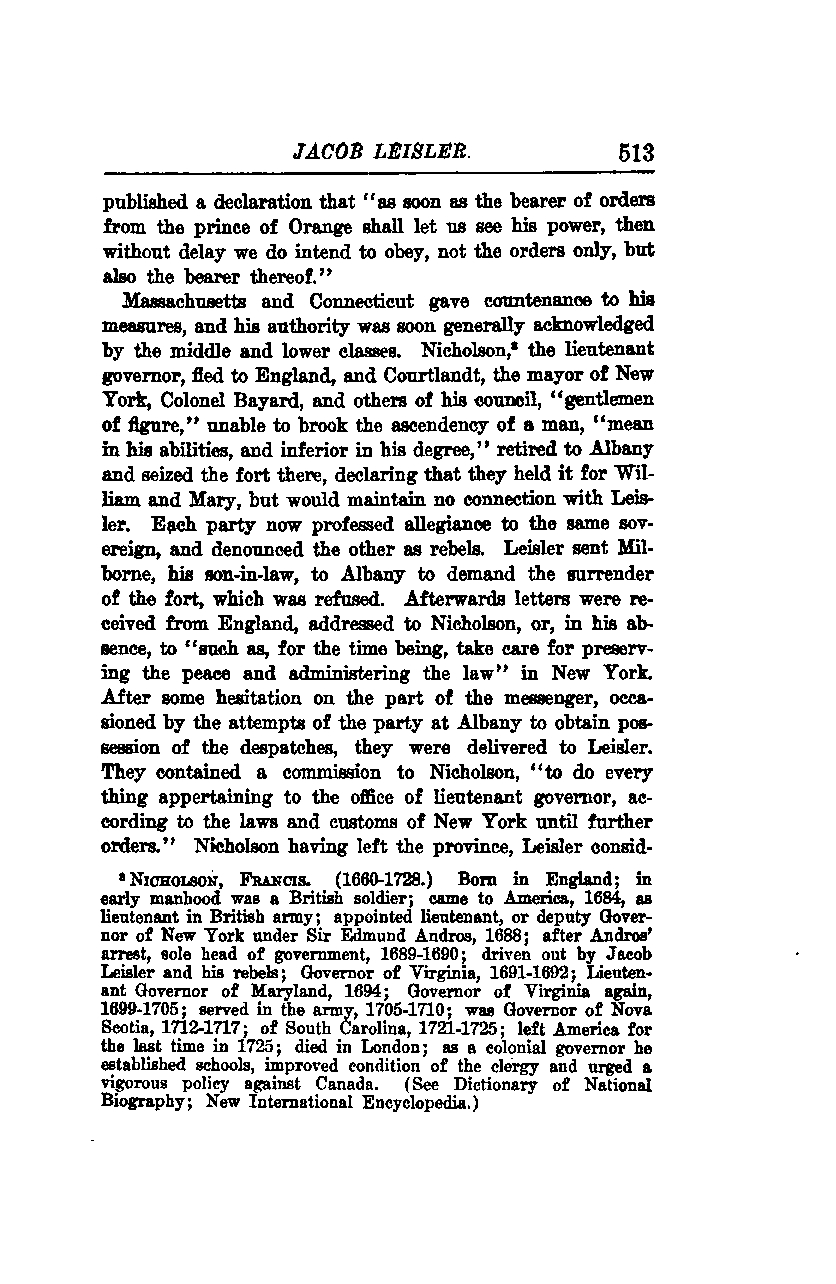
Here is the translated text as follows:
JACOB LEISLER
Jacob Leisler published a declaration that "as soon as the bearer of orders from the Prince of Orange shall let us see his power, then without delay we do intend to obey, not the orders only, but also the bearer thereof."
Massachusetts and Connecticut supported his measures, and his authority was soon generally acknowledged by the middle and lower classes. Nicholson, the lieutenant governor, fled to England, and Courtlandt, the mayor of New York, Colonel Bayard, and others of his council, "gentlemen of figure," unable to brook the ascendency of a man "mean in his abilities, and inferior in his degree," retired to Albany and seized the fort there, declaring that they held it for William and Mary, but would maintain no connection with Leisler. Each party now professed allegiance to the same sovereign and denounced the other as rebels. Leisler sent Milborne, his son-in-law, to Albany to demand the surrender of the fort, which was refused. Afterwards, letters were received from England, addressed to Nicholson, or, in his absence, to "such as, for the time being, take care for preserving the peace and administering the law" in New York. After some hesitation on the part of the messenger, occasioned by the attempts of the party at Albany to obtain possession of the despatches, they were delivered to Leisler. They contained a commission to Nicholson "to do everything appertaining to the office of lieutenant governor, according to the laws and customs of New York until further orders." Nicholson having left the province, Leisler considered himself the rightful authority.
Francis Nicholson (1660-1728)
Born in England, Francis Nicholson came to America in 1684 as a lieutenant in the British army. He was appointed lieutenant, or deputy governor of New York under Sir Edmund Andros in 1688. After Andros' arrest, he became the sole head of government from 1689 to 1690 but was driven out by Jacob Leisler and his rebels. Nicholson later served as Governor of Virginia from 1691 to 1692, Lieutenant Governor of Maryland in 1694, and Governor of Virginia again from 1699 to 1705. He served in the army from 1705 to 1710 and was Governor of Nova Scotia from 1712 to 1717, and of South Carolina from 1721 to 1725. He left America for the last time in 1725 and died in London. As a colonial governor, he established schools, improved the condition of the clergy, and urged a vigorous policy against Canada.
(See Dictionary of National Biography; New International Encyclopedia.)
---